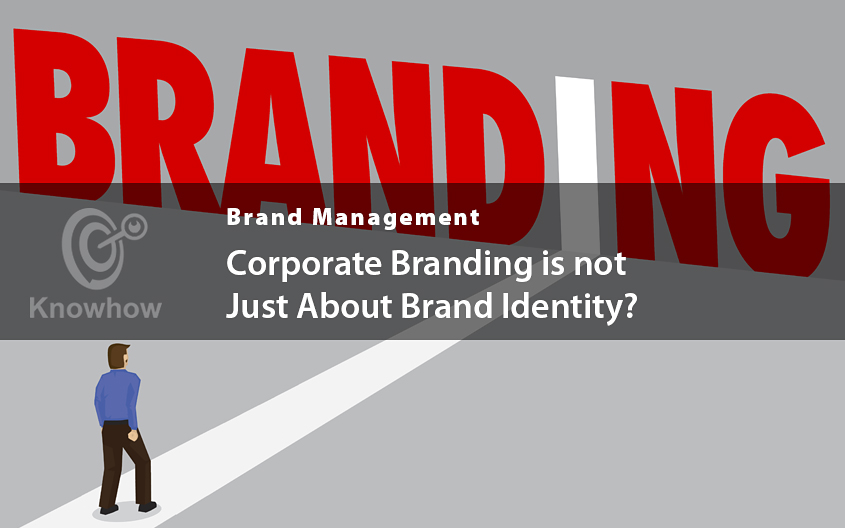
Nowadays, branding is all around us. We can see it in every part of our society. In fact, even though we mostly associate it with products and services, there’s also corporate branding, as well as sports, NGO, cultural, and religious branding. Countries and regions delve into it as well, so it’s safe to say that it’s an important activity for most institutions and organisations.
Organisations actually see branding as a strategic move. However, it is not owned or created by the marketing department. It’s actually the CEOs, as well as the senior management who own the corporate brand identity. What’s more, some cases also show that an organisation’s promoters also have individual brand identities. But they also have to take part in building and managing the business or corporate identity too. An excellent example of this is Richard Branson, who is a brand himself, but also the owner of Virgin Group.
What is a corporate brand?
Although most people believe that a corporate brand is nothing but the organisation’s brand identity, it is so much more than that. A corporate brand actually represents an organisation’s core values; it represents their value proposition and ethics, which show where they stand in terms of their business, as well as their customers. Moreover, a corporate brand can also serve as a cultural ambassador and a value system that influences the organisation and its reputation.
But how do we evaluate brand value or measure how successful a corporate brand is? Well, we have to take into account the customers, the brand’s value proposition, and the perceived value formed by the investors. Furthermore, the stock market can show us how the brand image and value of a certain brand are perceived.
In terms of investors, they have a different way of measuring a company’s performance. They consider the balance sheet and the brand value as well. In fact, industry experts have worked on creating models that would allow investors to measure brand equity and brand value.
Maintaining the core brand value
The organisation’s management takes care of the brand image, and it also maintains the brand’s core value. Furthermore, the creation and the delivery of this value have to involve the whole organisation, its employees, and all business processes.
However, that’s not all. When we take into account the customers’ perceptions and requirements, we can see that these are also changing. Thus, corporate branding has to keep up with the times and developments. Companies have to enhance their value continuously and adjust to the changing markets, as well as the changing perceptions of the consumers.
The case of IBM
A really good example of what refusing to adjust could do to your brand is typified by that of IBM. Their corporate brand image suffered because they were not keeping up with the changes. What’s more, it took them quite a bit of time to realise what they were doing wrong. However, once they did, they modified their business processes and put most of their efforts into a key business segment. The rest is history – they became the leaders in their industry segment once more.
Nevertheless, that wouldn’t have been possible had they not had a powerful brand image and value already. These two factors helped them change their course successfully and adjust their business without sacrificing their market reputation.
Changing times call for attention to detail
Nowadays, consumers are aware of brands, and they can easily reach an informed decision by themselves. Thus, organisations have to build customer loyalty and maintain their leadership like never before. Moreover, they have to make long-term changes in order to increase their corporate brand value and get a chance to always deliver a superior brand experience.
But what is a brand experience? It is a mix of real-time experience that the customer has while interacting with the brand and its perception of it. In essence, it is an impression the customer forms based on his past and present experiences. Moreover, the customer takes into account his knowledge of the brand as well, not to mention the organisations’ perceived value and reputation.
Related content:
Brand Management Knowhow – learn more about branding with our collection of educational articles.
From logo printed pens, luxury metal keyrings, branded polo shirts, custom printed notebooks and laptop bags we are sure you will find the perfect promotional corporate gifts to help your corporate branding efforts here at GoPromotional. If however, you require further information or have any specific questions, don’t hesitate to give a member of the GoPromotional team a call on 0800 0148 970 or simply email us today.






